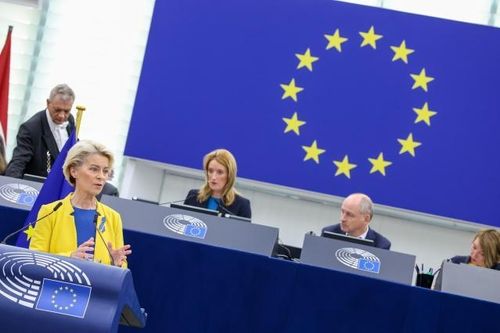FuelCell Energy, Inc. has closed on transactions with Franklin Park and Group 1001 Insurance Holdings for two of its clean energy projects—the Tri-gen platform in Long Beach, California, and the new fuel cell park in Derby, Connecticut, according to a news release.
These two transactions include one of the first direct transfer agreements that monetizes both the Investment Tax Credits (ITCs) and Hydrogen Production Tax Credits (H2 PTCs) enabled by the Inflation Reduction Act of 2022 and include a tax credit direct transfer agreement and a tax equity partnership totaling net proceeds of $34.2m. These give FuelCell Energy the financial flexibility to further refine its clean energy technology and to participate in clean energy collaborations and transition projects around the world.
“We are at a critical point on the path towards an energy transition, and it is particularly important to leverage these projects’ long-term, recurring cash flow through tax equity investments from firms like Franklin Park and Group 1001. This allows us to maintain a steady pace of investment in innovation and commercialization efforts and signals that our sustainable clean energy solutions are attracting strong interest from the market,’’ said FuelCell Energy’s President and CEO Jason Few.
Long Beach, California
FuelCell Energy and Toyota Motor North America, Inc. recently announced the completion of the first-of-its-kind “Tri-gen system” at Toyota’s Port of Long Beach operations. The Tri-gen system, owned and operated by FuelCell Energy, produces renewable electricity, renewable hydrogen, and water from directed biogas. FuelCell Energy contracted with Toyota to supply the products of Tri-gen under a 20-year purchase agreement. Tri-gen enables Toyota Long Beach to be the company’s first port vehicle processing facility in the world powered by onsite-generated, 100 percent renewable energy.
1. Tri-gen produces a net 2.3-megawatts of renewable electricity for delivery, part of which will support the Toyota Logistics Services (TLS) Long Beach operations at the port, which processes approximately 200,000 new Toyota and Lexus vehicles annually.
2. The FuelCell Energy Tri-gen system can also produce up to 1,270 kg/day of hydrogen which will provide for TLS Long Beach’s fueling needs for its incoming light-duty passenger fuel cell electric vehicle (FCEV) Mirai, while also supplying hydrogen to the on-site heavy-duty hydrogen refueling station to support TLS logistics, drayage operations, and other heavy-duty FCEV commercial vehicles at the port.
3. Tri-gen’s hydrogen production process can co-produce up to 1,400 gallons of water per day which will be used by TLS Long Beach for car wash operations for vehicles that come into port before customer delivery. This will help decrease the use of constrained local water supplies by up to as much as half a million gallons per year.
Group 1001 and Franklin Park purchased the ITCs from a FuelCell Energy subsidiary that owns Tri-gen, which yielded approximately $6.3 million of net proceeds to FuelCell Energy received by the company in October 2023. In addition, in a first-of-a-kind transaction under the agreement, FuelCell Energy will also sell to the investors the H2 PTCs generated over a 10-year period.
Derby, Connecticut
FuelCell Energy is also completing commissioning of two projects in Derby, Connecticut, for which Franklin Park is providing tax equity financing: a 14-megawatt baseload fuel cell project, which consists of 10 fuel cells, and a 2.8-megawatt baseload fuel cell project, which consists of two fuel cells. The two Derby fuel cell parks serve to fill some of the power generation gap impacting the state.
While fuel cells serve a variety of functions, such as creating hydrogen or capturing carbon, in Derby they are being used to deliver competitively priced, Class I Renewable Energy as part of 20-year power purchase agreements with Eversource and United Illuminating. In Connecticut, a Class I renewable energy source is defined by statute as electricity produced from wind power, geothermal power, or fuel cells.
- The 14-megawatt baseload fuel cell project supplies power to thousands of customers of Eversource and United Illuminating. It is the second largest fuel cell park in North America following only FuelCell Energy’s Bridgeport, Connecticut, park. The location in Derby was selected by the state, which held a competitive bidding process as part of its efforts to foster distributed utility scale power to enhance energy reliability and grid resilience.
- The 2.8-megawatt baseload fuel cell project was competitively awarded to FuelCell Energy by Eversource under the Shared Clean Energy Facility program in Connecticut.
Group 1001 and Franklin Park’s tax equity financing commitments for these projects will result in approximately $27.9 million of net proceeds to FuelCell Energy of which approximately $7.3 million of net proceeds were received by the company in October 2023 with the balance expected in the first fiscal quarter of 2024.






